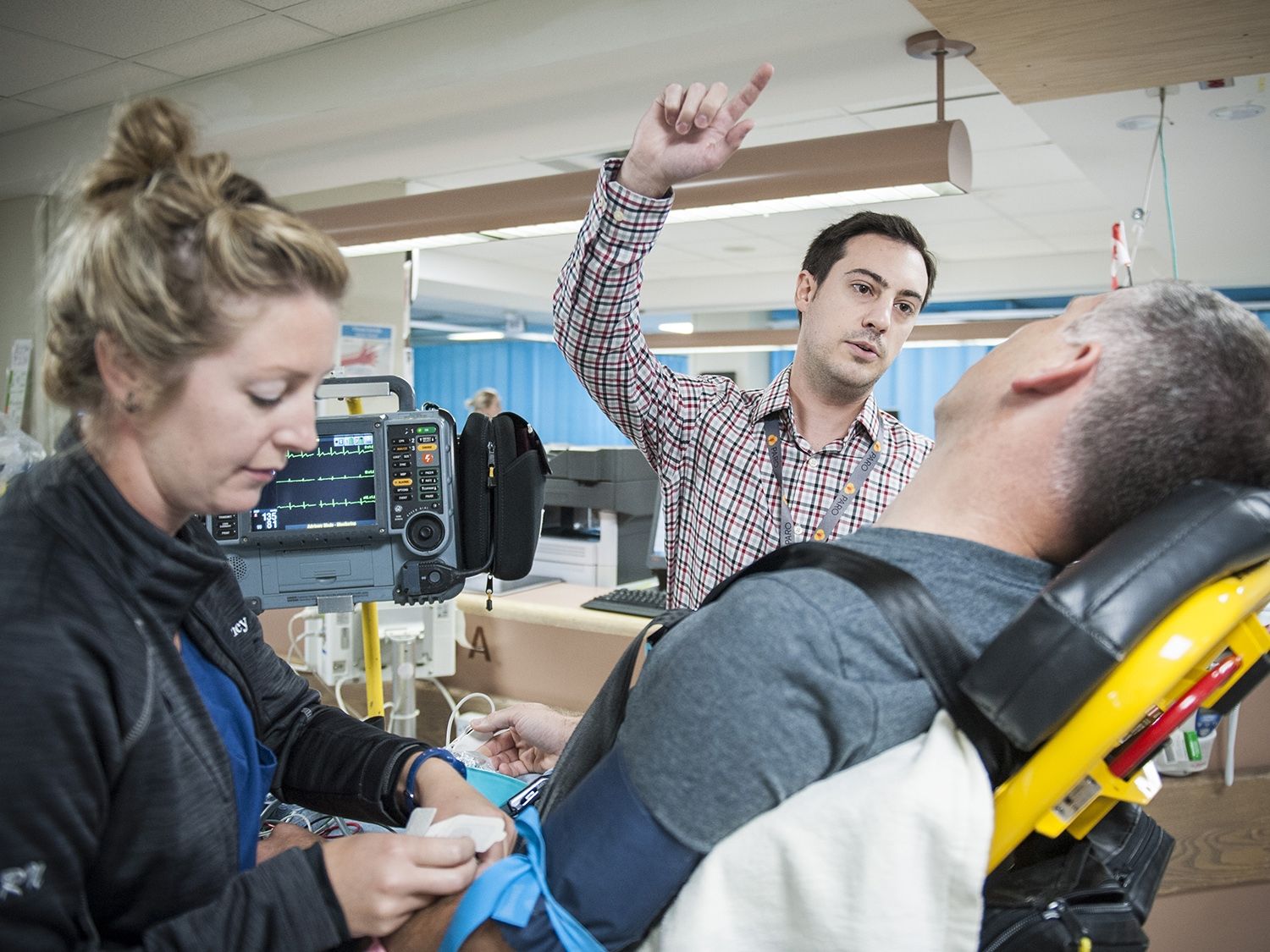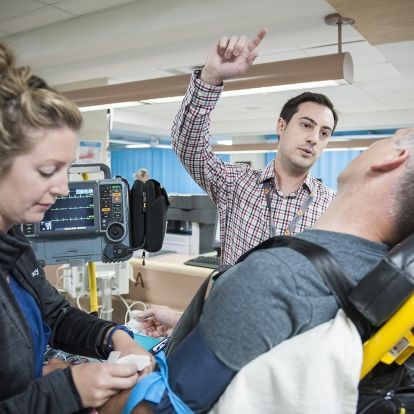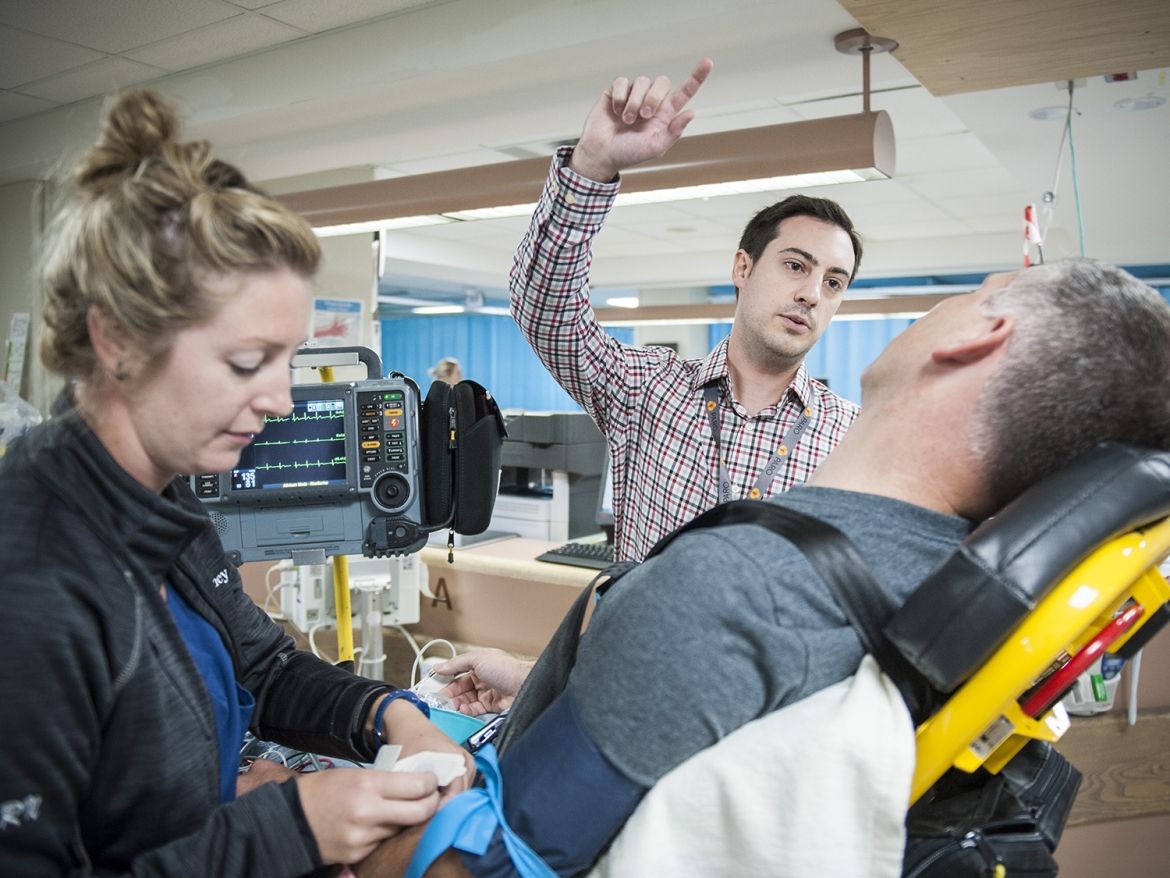
A simple-to-use tool for screening patients suspected of severe stroke has improved those patients’ access to Endovascular Thrombectomy (EVT), a clot-removal procedure that reduces the patient’s risk of mortality and long-term disability, research at Kingston Health Sciences Centre has shown.
The tool uses a few observational cues to help triage nurses assess patients who arrive at Emergency six to 24 hours after their symptoms begin. It enables them to identify and fast-track candidates into advanced stroke care more quickly.
“ED nurses received education on the tool, then trialed it, and we got their feedback. It proved to be quite successful,” says team member Laura McDonough, a registered nurse, Emergency Department and Clinical Learning Specialist at KHSC.
“Qualitatively, across the region, nurses felt this has expedited care for patients and for timely access to this revolutionary treatment for stroke,” says Colleen Murphy, a registered nurse and Regional Stroke Best Practice Coordinator, Stroke Network of Southeastern Ontario, and part of a clinical team who did this work.
They will describe the study and its effects at the Kingston Nursing Research Conference on Thursday, March 12 at the Donald Gordon Centre.
Also presenting is Andrea Rochon, a PhD student at Queen’s School of Nursing, who will talk about her research into opioid de-prescribing in longterm care homes in Ontario.
“I’ve worked closely with older adults and noticed a lot of concerns about medications. I also became interested in the opioid crisis as it unfolded,” says Ms Rochon, whose experience included working as a clinical nurse-specialist in gerontology at Providence Care Hospital in Kingston. “Older adults are particularly vulnerable to the side effects and negative consequences of opioids, and there has not been much research looking at the effects of de-prescribing these drugs.” Her research aims to address that gap.
End-of-life care will also be highlighted, with Ann Murray, a registered nurse and clinical educator at Providence Care Hospital, presenting a poster on the development of a bereavement pamphlet for family and friends in the hospital’s Palliative Care Unit.
They are among more than 30 speakers and poster presenters from Kingston’s hospitals, St. Lawrence College and Queen’s University who are highlighting investigations into a variety of topics in patient care and professional practice, including studies into pediatric pain research, health literacy in patients transitioning from hospital to home, and an outpatient model of care for administering a single-dose drug.
Keynote speakers are addressing issues of machine learning in nursing practice, indigenous perspectives on research into kidney health, and the role of nurses in medical assistance in dying.
Conference details and the day’s agenda are available at
https://www.eventbrite.ca/e/kingston-nursing-research-conference-2020-registration-84871313383
NOTE: Registration closes March 4th.
Contact:
Barbara Patterson,
Conference Organizer
E: @email
Gallery


KHSC has delivered lifesaving EVT treatments since 2017. Now, research by a clinical team at KHSC’s KGH site is showing that use of a patient screening tool is enhancing access to this advanced care.



